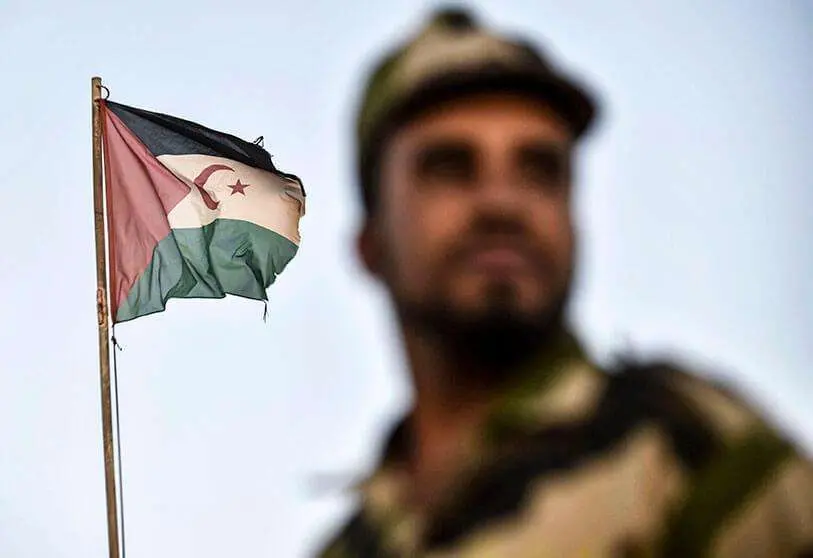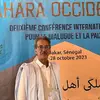CNI or black propaganda of the Polisario

President Sánchez's decision to overturn Spanish policy on the Sahara continues to generate reactions and controversy, not only among the political forces as a whole, but also in the media and in bodies and services close to the government.
This line of action includes an alleged report by the CNI (Spanish intelligence service) to which a well-known Spanish newspaper attributed a paper published this week. Rather than an investigation or intelligence analysis worthy of reference for specialists and observers, it looks more like a report by the Polisario propaganda services. It is a compilation in newspaper archives of names and surnames of people or organisations who have denounced or criticised the Polisario for various reasons, from detention and torture to extrajudicial executions and sexual assaults. The newspaper paid little attention to the consistency or otherwise of the allegations.
Basically, it seems that through the leak the newspaper in question only wanted to show its disagreement, as the PP did with the change in Spain's Saharawi policy announced by President Pedro Sánchez, presenting it as the result of pressure from Morocco, and not as a new approach to move away from the negative neutrality that has been observed by previous governments. "The aim was to put pressure on the Spanish government to obtain a favourable position in the Western Sahara dispute", the newspaper notes.
This strategy involves the media, Polisario-funded portals and journalists, but also circles known for their open hostility towards Morocco. The aim is none other than to reverse Pedro Sánchez's decision and prevent any progress towards the desired definitive solution to the Western Sahara problem. No less surprising is that there are still conservative sectors in Spain - I doubt that the CNI of the 21st century is among them - who are uncomfortable with President Sánchez's new position, as they prefer the Saharawis to continue to entangle Morocco and keep it occupied in Western Sahara, even if they end up extinct as redskins.
The Sahrawi Movement for Peace (MSP) is also in the crosshairs of this strategy of harassment and demolition after announcing its explicit support for the Spanish government's new position. The MSP, unlike the Polisario, welcomes the willingness of the Socialist government and encourages it to become more involved in the efforts and search for a peaceful solution to this problem, which has been stalled for fifty years.
In the aforementioned report attributed to the CNI, although sources have denied it, reference is made to an alleged connection between the MSP and Moroccan intelligence services. The idea is to present the new Sahrawi movement without evidence as a "front for the DGED", the Moroccan version of the CNI. The branding of the "made in Polisario" product could not be more diaphanous, nor the set-up more surreal.
The alleged CNI report articulates the plot around the Sahrawi activist Fadel Braika, who last year filed a complaint against the Polisario leader after his admission to the Logroño hospital. The source insinuates that Braika acted on instructions from the Moroccan DGED, including that his trip to the Tindouf camps in June 2019 to visit his mother was "probably" instigated by the Moroccan secret service so that, on his return, once arrested and tortured in Tindouf, he would denounce the Polisario leaders. Of course, neither the report nor the newspaper alludes to the arbitrary detention, along with Fadel Braika, of two other opponents documented in several reports by Human Rights Watch and other organisations.
The script and storyline is worthy of a stage production, but it suffers from what film experts call a "failure of record": the link between those events and the MSP in order to infer an alleged link between the latter and the Moroccan services. For the constitution of the new Sahrawi movement, which will not take place until 22 April 2020 and its founding congress six months later, is still a year away.
In any case, no one can rule out or deny that the MSP, like many organisations with more experience and trajectory, cannot be infiltrated by agents or informers in the service of Moroccan intelligence, but also of the Polisario, the CNI, Mauritania or Algeria, without this necessarily meaning that it is a front for anyone except, of course, a growing majority of genuine Saharawis who have decided to put an end to the drama that the Saharawis have been living and suffering since 1975.
The report contains gaps and shortcomings that would be difficult for a respectable institution such as the CNI to endorse. Rather, it looks like a botch-up in the style of the "black propaganda" actions taken from the Cuban manuals from which the Polisario services often draw their inspiration. It is no secret that the "favourite sport" of the Polisario's political police is defamation and slander against anyone who dares to disagree with or criticise its totalitarian model and repressive practices. There is no more room on the broad pedestal of "treason". Hundreds of Sahrawi victims with the stigmata of torture from the Middle Ages have already passed through it, but also dozens of former high-ranking leaders, including two of its five main founders, and the icing on the cake is Donal Trump, Pedro Sánchez and former presidents Felipe González and José Luis Rodríguez Zapatero.
This is the old mantra to which the Polisario leadership resorts to cover up the progressive deterioration of its credibility and political project as a result of the countless mistakes and atrocious crimes perpetrated in the past. Time and events have shown that Polisario has ended up veering towards a kind of irrational social political model that combines tribal loyalties and the most perverse methods of political and ideological totalitarianism. The truth is that the current Polisario leadership has lost its way since the emergence of the MSP. This is what led it to make its most serious mistake in recent times: the unilateral breaking of the ceasefire on 13 November 2020, a decision that caused it to abandon strategic positions on the ground and provoked the positioning of influential countries, including Spain, which interpreted this gesture as a declaration of war on the UN's peace efforts.
The leadership of the old armed movement, born in the heat of the Cold War, has not been able to digest, due to its sectarian nature, the fact that an opposition movement has emerged from its entrails that was able to establish itself, in less than two years, as an alternative through a moderate, viable political project capable of pulling the Saharawis out of the tunnel. Another source of unease is the fact that the MSP's leadership is originally from Western Sahara, while the majority of its members are Algerian, Moroccan or Mauritanian nationals. If they had not encountered Colonel Gaddafi, his projects, weapons and dollars, the Saharawis would have escaped a tragic war and the founders of Polisario would probably have arrived in Western Sahara as part of the 1975 Green March.
In short, the nervousness and anxiety within the Polisario leadership and its recourse to dirty war against the MSP is understandable, for it is the first time in fifty years that it feels that its legitimacy and representativeness are seriously threatened by a more democratic and tolerant political project which, in addition to being made up of genuine Sahrawis, does not bear any traces of war crimes and human rights violations and is capable of leading the Sahrawi people to a future of peace and prosperity.
Hach Ahmed, First Secretary of the Sahrawi Movement for Peace (MSP)

